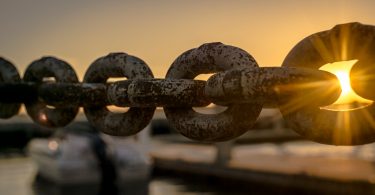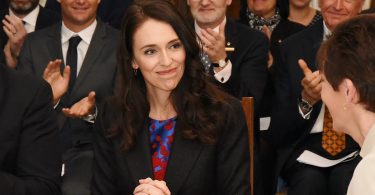25 years ago the Berlin Wall fell. Between 1961 and 1989 it divided Germany along ideological lines. On one side stood the NATO aligned Federal Republic of Germany, what we call West Germany. The Soviet backed German Democratic Republic, East Germany, stood the other side. Never had political divisions been so clearly marked.
8,000 glowing balloons recreate the Berlin Wall. Today is 25 years since German Reunification pic.twitter.com/bS0XRYhECd
— AmazingMaps (@AmazingMaps1) October 3, 2015
After the spectacular destruction of the Second World War, the superpowers of the day decided that war could never return to Europe. The Potsdam Agreement that followed the war divided Germany between the occupying Allied powers, the United States, the United Kingdom, France and the Soviet union. Berlin was also divided between the four nations.
Political differences grew between the Soviet Union and the other Allied nations. This led to East Germany being declared a state on the 7th of October 1949. The youngest European country eventually built the 26 mile long wall in 1961.
Although born out of careful political moves, the fall of the wall came as a result of a un-informed spokesman. The amount of refugees leaving East Germany kept growing. The leader of the country Egon Krenz decided to allow people to cross the border into West Germany, but only with official permission. This was announced on the 9th of November 1989 by the East Berlin party boss Gunter Schabowski. Unknown to Schabowski, the new rules were to come into effect the following day. When asked by a journalist when people would be allowed to cross, the unprepared spokesman replied, “As far as I know, immediately, without delay.” Once this sentence was reported to the whole of Germany, people flooded to the Wall, believing they could simply cross. The border guards refused to use deadly force to stop the growing crowds. Eventually, they simply let everyone cross into West Berlin. This action effectively destroyed the East Berlin as a communist state. The Berlin Wall no longer stood in the way of the German people. Only months earlier Egon Krenz predicted the wall would stand for another 100 years.
This piece of the Berlin Wall came down on 9-Nov-89. Its fall ultimately led to the past 25 years of #GermanUnity. pic.twitter.com/TTkHAKPEMS
— Michael Hartmann (@HartmannLIFE) October 3, 2015
Over the following 25 years unified Germany has grown into one of the most powerful European countries. It has a leading role in the European Union, and has an enviously healthy economy. Despite this, Germany is still facing difficulties.
It’s current Chancellor, Angela Merkel has so far admirably dealt with the refugee crisis. Germany accepts more refugees than any other European country. Merkel has promised the 16 German states 3.7 billion euros this year to help them fund crucial services for refugees. As the crisis grows however, Merkel’s usual composure is being tested. Interior Minister Thomas de Maiziere recently questioned her judgement on allowing refugees in from Hungary, “things got out of control” he said.
The German people are also beginning to turn against her welcoming policy. A recent poll by Focus magazine found that 48% of Germans did not support her “open door” policy, with only 41% approving of it. The European Union has so far struggled to create a cohesive policy to deal with the crisis, and Merkel has to be careful not to take the brunt of the growing criticism. Merkel has rightly been credited with creating a stable and financially healthy Germany. But such events are testing her strength.
Merkel also faces difficulties from other European States. David Cameron is insistent on changing the United Kingdom’s relationship with the European Union, something which could undermine the very principles it is based on. The Ukrainian civil war continues to persist, the largest European conflict in over a decade. Perhaps the largest issue is Russia’s growing bravado and it’s continued defiance against the West.The importance that Merkel has in solving these issues is not to be underestimated. Her legacy will be more defined by what she fails to solve rather than the strong Germany she helped to create.
25 years ago a simple error of judgement led to one of the most important events of the 20th century. The Berlin Wall fell because the then ruling powers were taken by surprise and were not prepared. Germany cannot allow such mistakes to be repeated. Merkel has a responsibility to help unite Europe on its many problems, and in the process prevent political division falling on the continent once again.








